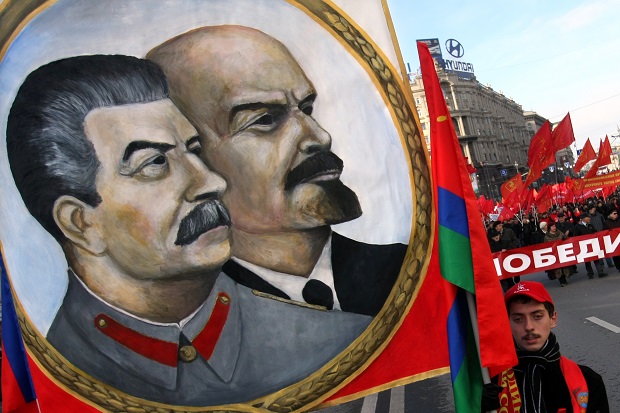I rather like Ed Miliband, and for what it’s worth I don’t think he has inherited much, if any, of his father’s rancid political views. Nevertheless the fact that Ed Miliband has often referred to his father’s thought makes Miliband Snr fair game in a way that other politicians’ parents might not be. But in the row over the Daily Mail / Ralph Miliband affair two things remain to be pointed out.
The first relates to war service. Contra Emily Maitlis (among others) on last night’s Newsnight, it is perfectly possible to fight for a country in a world war and still hold values (then or subsequently) inimical to the country you fought for. After all, Sir Oswald Mosley fought for Britain, and was injured, in the First World War. But I strongly doubt whether, were Max Mosley currently running a political party and regularly citing his father as inspiration, that fact would wholly silence the fascist leaders’ critics.
Secondly (and speaking of Mosley) there is something very interesting in the constant dredging up (by Alastair Campbell last night, the Guardian etc ad nauseum) of the matter of the Daily Mail and the Blackshirts in the 1930s. Whenever a certain type of person lambasts the Daily Mail they always reach for the example of that temporary (and subsequently retracted) opinion expressed by the current Mail proprietor’s great-grandfather eighty years ago. Just yesterday the Guardian wheeled out a bunch of old socialists, including Tariq Ali, to repeat the claim.
I always find this discussion fascinating. Because as we were reminded last year when the lifelong communist and Miliband family friend Eric Hobsbawm died, when it comes to considering the two great totalitarianisms of the twentieth century the scales of opprobrium remain radically unbalanced.
There is no better demonstration of this than the disparity between continuous references to that article in the Mail in the 1930s and the utterly unremembered fact that far more recently the Guardian employed as an editor — and continues to employ as a contributor — someone who was alleged to be a paid agent of the KGB.
Richard Gott was a senior editor of the Guardian when, in December 1994 the Spectator published a piece by Alasdair Palmer centred on the information of Soviet dissident Oleg Gordievsky. The piece alleged that the senior Guardian journalist was an ‘agent of influence’ of the Soviet security service. Gott denied the allegation.
The Guardian’s then editor-in-chief, Peter Preston, tried to ignore the affair. But Gott resigned and the resignation was accepted by Preston, who continued to complain that the Spectator story was in fact the work of MI5 and/or MI6. Anyhow, Gott said: ‘I took red gold, even if it was only in the form of expenses for myself and my partner. That, in the circumstances, was culpable stupidity, though at the time it seemed more like an enjoyable joke.’ Gott has certainly had the last laugh because his career has not suffered much. He has continued to contribute to the Guardian where he can often be found lambasting the Western democracies. He also enjoys an uninterrupted career in academia and is currently ensconced as an honorary fellow at the University of London.
It is undeniable that the crimes of Marxism outweighed those of fascism. Together these evil twin totalitarianisms created more human misery than any others in history. Yet how to explain the fact that while vast popular opprobrium rightly attaches to the remnants of one, the other side in that foul conflict continue to be indulged as heroes, harmless old jokers or parents whose views must not be critiqued.







Comments